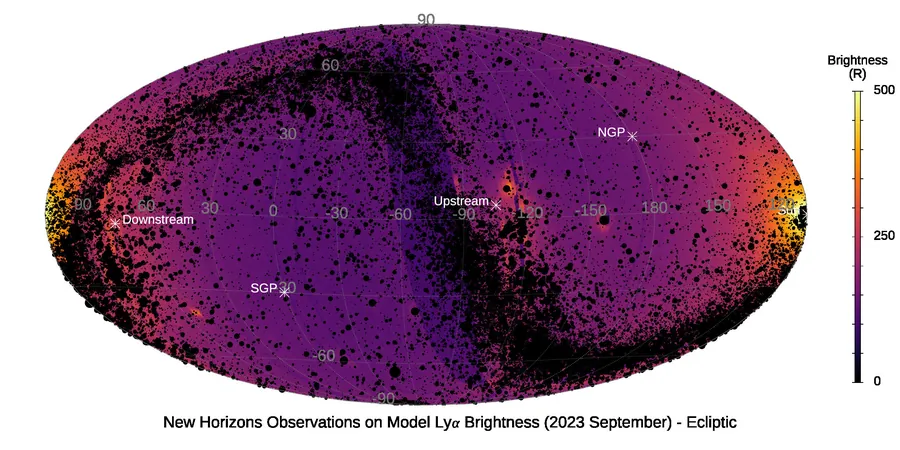
Malaysia Stands Strong Amidst Trump Tariffs: Anwar Ibrahim Confident in Country's Economic Future
2025-04-07
Author: Daniel
KUALA LUMPUR:
Prime Minister Anwar Ibrahim has assured the nation that Malaysia will not slide into recession, despite the backdrop of new tariffs introduced by United States President Donald Trump. Anwar made this declaration in a video statement shared on his social media on April 6, offering reassurance to both citizens and businesses alike during uncertain economic times.
In light of these tariffs, which began taking effect on April 5—imposing at least a 10% duty on Malaysian exports and escalating to as high as 24% shortly thereafter—Anwar characterized the situation as a "major threat" to global trade and investment. However, he remains optimistic about Malaysia’s economic resilience, stating, “The government does not foresee a recession in Malaysia currently, thanks to robust household spending and healthy domestic investments.”
Despite these positive sentiments, Anwar acknowledged that the new tariffs would likely necessitate a review of the country's economic growth forecast, which is currently estimated at 4.5% to 5.5% for the year. Key sectors such as textiles, furniture, rubber, and plastics will potentially face significant pressures due to the tariffs, posing challenges for manufacturers and workers in these industries.
He emphasized that Malaysia will not mirror the U.S. approach by introducing retaliatory tariffs, underscoring the nation’s commitment to free trade principles. “Our response will be calm, firm, and guided by Malaysia’s strategic interests,” he assured. Malaysia’s standing as the chair of the Association of Southeast Asian Nations (ASEAN) has positioned it to play a pivotal role in coordinating a unified response from regional leaders to engage with the U.S. and safeguard vital market access.
In discussions with fellow ASEAN leaders, including those from Singapore and Indonesia, there has been a collective agreement to avoid retaliation and instead seek constructive dialogue with the U.S. Anwar also connected virtually with Vietnamese Prime Minister Pham Minh Chinh, who reaffirmed Vietnam’s commitment to negotiations to navigate these trade challenges.
No Stone Unturned: Exploring All Options
Trade Minister Tengku Zafrul, speaking at a press conference, echoed Anwar’s sentiments, stating that the government is exploring every avenue to mitigate the impact of the tariffs without resorting to retaliatory measures. He clarified that Malaysia does not agree with the figures cited by the U.S. regarding its tariff structures and is actively seeking further clarification.
To facilitate this, a dedicated Task Force on ‘Managing US Tariffs’ is being established to gather feedback from stakeholders, ensuring that industries are well-equipped to adapt to the evolving trade landscape. The government aims to present a united front at all levels and will engage with various ministries and associations to ensure comprehensive action against potential impacts.
As Malaysia navigates these turbulent waters, the prime minister and his cabinet are committed to upholding the country's standing as an open and fair trading nation, fostering cooperation with ASEAN counterparts, and ensuring that Malaysia’s voice is prominently heard in international trade discussions.
The future holds uncertainty, but with coordinated efforts and a strong economic foundation, Malaysia remains poised to weather the storm. Could this be a turning point for trade relations between Malaysia and the US? Only time will tell.





 Brasil (PT)
Brasil (PT)
 Canada (EN)
Canada (EN)
 Chile (ES)
Chile (ES)
 Česko (CS)
Česko (CS)
 대한민국 (KO)
대한민국 (KO)
 España (ES)
España (ES)
 France (FR)
France (FR)
 Hong Kong (EN)
Hong Kong (EN)
 Italia (IT)
Italia (IT)
 日本 (JA)
日本 (JA)
 Magyarország (HU)
Magyarország (HU)
 Norge (NO)
Norge (NO)
 Polska (PL)
Polska (PL)
 Schweiz (DE)
Schweiz (DE)
 Singapore (EN)
Singapore (EN)
 Sverige (SV)
Sverige (SV)
 Suomi (FI)
Suomi (FI)
 Türkiye (TR)
Türkiye (TR)
 الإمارات العربية المتحدة (AR)
الإمارات العربية المتحدة (AR)